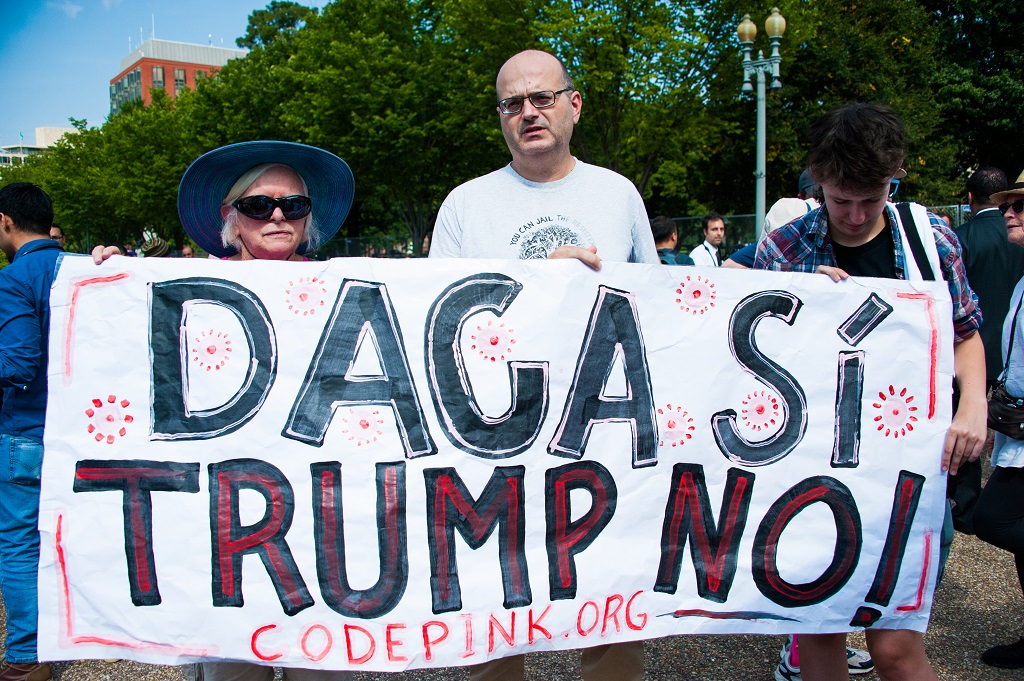One of the looming questions about Mr. Trump and his prospective changes to immigration policy is how he plans to affect Deferred Action for Childhood Arrivals (DACA) – the program started by the executive order of President Obama in 2012 giving work permits to thousands of undocumented people brought to the United States as children. Almost since the beginning of his run for office, Trump has repeatedly stated that he intends to get rid of the DACA program, but many people still wonder if – and how – he will do so.

It is important to understand how executive orders work to also understand how they can be undone. Executive orders are often issued when a president wants to bypass Congress as, unlike the usual process of establishing a law, the legislative body is not required to approve any executive order, nor can it overturn one. Still, these orders are legally binding. The DACA program was created by an executive memorandum by Obama’s secretary of Homeland Security shortly after the President announced the executive order.
Although there is little that the Congress can do about an executive order, the one sure way of getting rid of one is in the White House. If a new President and their administration doesn’t agree with an order from a previous president, they can legally reverse it on their own. In this case, President-elect Trump’s secretary can simply rescind the executive memo that created DACA or issue a new memo to effectively end the program. So, this would be the easiest of the changes Trump can make his first few days in office as he likely wouldn’t have to do much other than order U.S. Citizenship and Immigration Services to stop issuing work permits to DACA applicants and stop renewing applications.
What about all the people who already have permits that may not expire for another year or two? There is no way to know for sure now but, the assumption is that the new administration is likely to just let them expire and stop accepting new applicants or renewals. It would be time-consuming and very expensive to do such a thing. It would also be too disruptive to too many families and employers, and lead to bad public relations and widespread social unrest.
Under the law, the Department of Homeland Security must provide written notice that it plans to revoke the permits and allow recipients 15 days to respond, so if the program is terminated, all participants will receive notice with the details of what will happen next. Despite Mr. Trump’s hardline stance on immediately beginning deportations as part of his immigration plan, there is simply no way he will be able to quickly deport all the nation’s undocumented immigrants. DACA participants are also least likely targets for deportation since they tend to have clean criminal history, they work or attend school and have already been screened by the federal government.
FIND OUT WHERE YOU STAND! You may already qualify for a benefit that you are not aware of yet. If you have never talked to an immigration attorney about your situation before, now is the best time to do so – before the new administration starts making changes that may affect you and your family. Contact an experienced, licensed attorney to find out what YOU can do to help your situation. If you would like our assistance, contact our office today at (210) 899-2290 to set up a consultation.


 Thank you for contacting us. Please complete this form and one of our team members will be in touch with you soon.
Thank you for contacting us. Please complete this form and one of our team members will be in touch with you soon.

